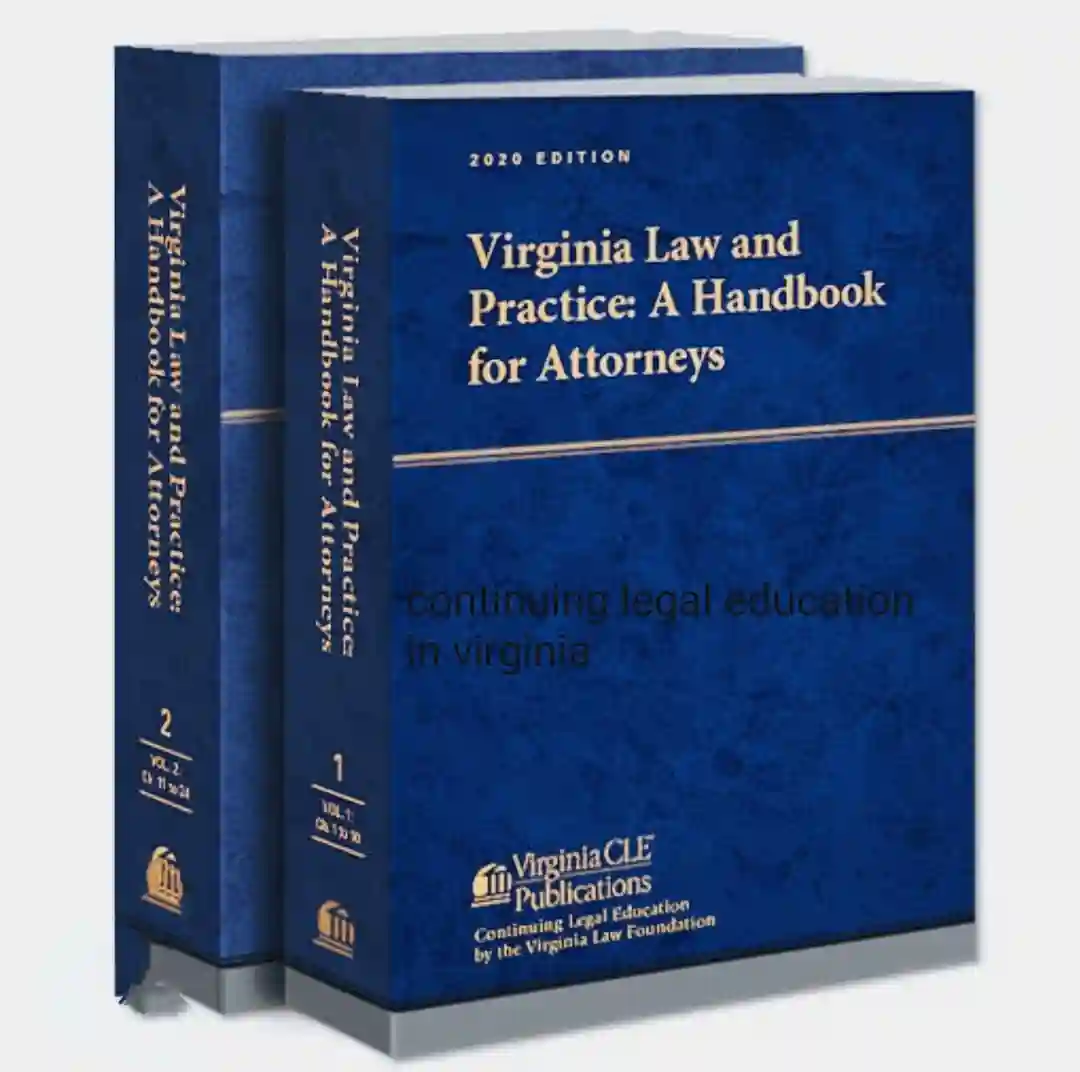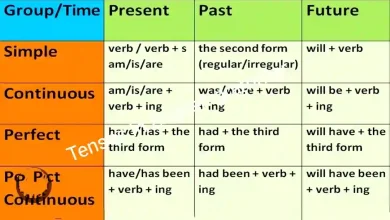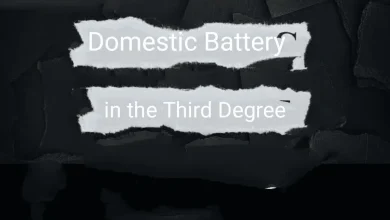Continuing Legal Education in Virginia: A Comprehensive Guide for Legal Professionals

Continuing Legal Education (CLE) is critical to maintaining a successful legal career. In Virginia, the Continuing Legal Education requirements are designed to ensure that attorneys remain informed about the evolving landscape of the law, best practices, and ethical considerations. Whether you’re a new attorney or a seasoned legal professional, understanding the ins and outs of Continuing Legal Education in Virginia is crucial for staying compliant and keeping your skills sharp. This blog post is a comprehensive guide detailing Virginia’s Continuing Legal Education requirements, registration process, types of Continuing Legal Education programs, benefits, and tips to help you effectively fulfill your obligations.
Legal education continues even after you graduate from law school. In fact, for attorneys, learning is a lifelong endeavor. Whether newly admitted to the bar or a seasoned lawyer, Continuing Legal Education (CLE) is a fundamental component of your career, particularly in Virginia. The Virginia State Bar requires attorneys to continue their education throughout their professional lives to ensure they remain well-versed in current laws, legal practices, and ethical standards. This guide will dive deep into Continuing Legal Education requirements in Virginia, discussing its importance, the intricacies of compliance, and how lawyers can efficiently meet these obligations.
Table of Contents
Introduction to Continuing Legal Education in Virginia
The legal landscape constantly evolves, with new legislation, case law, and emerging technologies reshaping how law is practiced. In Virginia, Continuing Legal Education (CLE) aims to help legal practitioners stay current with these changes, ensuring they can serve their clients effectively and ethically. CLE isn’t just about meeting mandatory requirements; it’s about keeping legal professionals sharp, informed, and capable of delivering high-quality legal services.
Through its regulations, the Supreme Court of Virginia has mandated CLE for all attorneys practicing in the state. This post will delve into all aspects of Continuing Legal Education in Virginia, guiding you to remain compliant, find suitable courses, and maximize the benefits of your ongoing legal education.
Virginia Continuing Legal Education Requirements and Deadlines
In Virginia, the Mandatory Continuing Legal Education (MCLE) Board oversees the CLE requirements for attorneys. Every active member of the Virginia State Bar must complete a set number of CLE hours each year. Let’s break down the requirements:
- Total Hours Required: Attorneys must complete 12 hours of CLE each year.
- Ethics Requirement: Two of the 12 hours must be in legal ethics or professionalism.
- Reporting Deadline: All CLE credits must be reported by October 31st each year.
- Compliance Deadline: The deadline to complete CLE requirements is October 31st, but attorneys have until December 15th to file reports with any applicable fees.
Staying on top of these deadlines is crucial to avoid late fees and potential non-compliance penalties. Attorneys who fail to meet the requirements may face administrative suspension once they fulfill their CLE obligations.
1. Understanding Continuing Legal Education Requirements in Virginia
1.1 What is Continuing Legal Education (CLE)?
Continuing Legal Education refers to mandatory education programs that lawyers must participate in after they have been admitted to the bar. CLE programs are designed to keep attorneys up-to-date with legal developments, improve their skills, and ensure they maintain high competence.
1.2 Why is Continuing Legal Education Important?
CLE programs serve several vital functions in the legal profession:
- Professional Competence: Laws evolve continuously, and Continuing Legal Education helps attorneys stay updated on changes in the law.
- Ethical Responsibility: Continuing Legal Education courses often cover ethics, ensuring that lawyers remain aware of their profession’s ethical guidelines.
- Specialization: Many Continuing Legal Education programs focus on specialized areas of law, allowing attorneys to develop expertise in areas of interest.
1.3 Virginia’s Continuing Legal Education Requirements
In Virginia, all active members of the Virginia State Bar are required to complete CLE credits each year. These requirements ensure that attorneys stay current with legal trends and improve their legal skills. The Virginia State Bar mandates:
- 12 CLE Credits Annually: Attorneys must complete 12 Continuing Legal Education annually, with at least 2 hours dedicated to ethics or professionalism.
- Reporting Deadline: The reporting deadline for CLE credits is October 31 each year, and credits must be completed by December 31 of the prior year.
- Carryover Credits: Virginia attorneys may carry forward up to 12 CLE credits from one year to the next, ensuring that any excess credits can still be used.
- Ethics Requirements: Two of the required 12 credits must be earned in courses focusing on ethics or professionalism.
Types of Continuing Legal Education Programs Available in Virginia
Virginia offers diverse Continuing Legal Education programs, providing flexibility for attorneys with different learning preferences and schedules. The types of programs include:
- Live Seminars: Traditional, in-person events where attorneys can learn from experts and network with peers.
- Webinars and Online Courses: Virtual learning options that provide the same level of educational quality as live seminars. These are ideal for those who need flexible timing.
- On-Demand Courses: Pre-recorded sessions are available anytime, allowing attorneys to learn at their convenience.
- Interactive Programs include workshops or panels where participants can actively engage, ask questions, and apply knowledge in real-time scenarios.
Each format has advantages, catering to varying learning styles and personal schedules.
2. Categories of Continuing Legal Education Courses
CLE credits can be earned in several categories depending on the content and delivery format. The Virginia State Bar recognizes the following types of CLE:
2.1 Live Interactive Programs
Live CLE programs are typically the most favored by attorneys because of the direct interaction with instructors and fellow attendees. These can include:
- In-person seminars.
- Live webinars where participants can ask questions in real-time.
- Live video conferences.
2.2 Online On-Demand Programs
For lawyers with busy schedules, on-demand CLE programs offer the flexibility to complete their requirements at their own pace. These programs are recorded versions of live sessions or stand-alone presentations on various legal topics. They allow attorneys to earn credits by watching online courses at a time that suits them.
2.3 Teaching and Writing Credits
Attorneys can also earn CLE credits by:
- Teaching: Lawyers who teach accredited CLE courses may earn credits for their preparation and presentation efforts.
- Publishing Legal Writing: Lawyers who publish scholarly articles in law reviews or journals may earn CLE credits for their contributions to legal education.
2.4 Pro Bono Service Credits
Virginia also offers lawyers a unique opportunity to earn CLE credits by providing pro bono legal services. Under the “Pro Bono CLE” rule, attorneys can earn up to 2 hours of CLE credit by offering legal assistance to indigent clients. This option encourages lawyers to serve in the community while satisfying their CLE obligations.
3. How to Comply with Virginia Continuing Legal Education Requirements?
3.1 CLE Accreditation
To ensure that the CLE credits you earn meet Virginia’s requirements, it is essential to choose accredited courses. The Virginia State Bar must accredit each CLE program for it to count toward your required credits. Attorneys can verify whether a course is certified by checking the Virginia State Bar’s website or contacting the CLE provider directly.
3.2 CLE Reporting
Attorneys are required to report their CLE credits annually to the Virginia State Bar. The process involves submitting a compliance report, which can be done online via the Virginia State Bar’s website. Lawyers should keep track of their CLE activities throughout the year to ensure accurate reporting.
3.3 Failure to Comply
If an attorney fails to meet their CLE requirements by the October 31 deadline, they may face penalties, including:
- Late Fees: Late reporting results in financial penalties.
- Suspension: Continued failure to meet CLE requirements may result in the suspension of an attorney’s license to practice law in Virginia.
How to Register and Submit Continuing Legal Education Credits?
Registering for CLE programs in Virginia is straightforward, with multiple online options. Attorneys can:
- Access the Virginia State Bar Website, which lists all approved CLE providers and courses. Attorneys can register directly from these listings.
- Approved Provider Platforms: Many approved providers offer streamlined registration processes through their online portals.
Once courses are completed, CLE credits can be submitted through the Virginia MCLE Compliance Reporting Form, available on the Virginia State Bar website. Most approved providers will also submit attendance on behalf of participants, but attorneys need to verify that their credits have been reported.
4. Navigating the Continuing Legal Education Landscape: Resources and Opportunities
Virginia offers a variety of resources to help attorneys meet their Continuing Legal Education obligations:
4.1 Virginia State Bar’s Website
The Virginia State Bar maintains a comprehensive list of accredited CLE programs on its website. The website allows attorneys to search for courses by topic, date, and location and provides guidance on how to report CLE credits and manage compliance.
4.2 Local Bar Associations
Many local bar associations in Virginia offer CLE courses, often tailored to the specific needs of attorneys practicing in those regions. These programs may cover local legal issues, trends, and updates relevant to particular jurisdictions.
4.3 National CLE Providers
National CLE providers, such as West LegalEdcenter, ALI CLE, and the National Business Institute (NBI), offer online and in-person programs recognized in Virginia. These providers often have various topics, from ethics and litigation to niche legal areas like intellectual property or environmental law.
5. Ethics and Professionalism: A Closer Look at the Virginia Requirements
Virginia places significant emphasis on ethics and professionalism in the legal profession. The mandatory 2-hour ethics CLE requirement reflects the importance of ethical behavior in upholding the integrity of the legal system. These programs typically cover topics like:
- Conflicts of interest.
- Attorney-client privilege.
- Rules of professional conduct.
- Responsibilities to the court and opposing counsel.
Ethics Continuing Legal Education programs ensure compliance with legal and professional standards and foster a deeper understanding of how attorneys can navigate complex ethical dilemmas.
6. Specialized Continuing Legal Education for Practice Areas
One of the significant benefits of CLE is the opportunity for attorneys to expand their expertise in specific areas of law. In Virginia, attorneys can find a wide range of CLE programs focused on various legal specialties, such as:
6.1 Family Law
Family law CLE programs in Virginia often address divorce, child custody, alimony, and prenuptial agreements. These courses help family law practitioners stay updated on recent legal changes and case law in this dynamic area.
6.2 Criminal Law
Criminal defense attorneys in Virginia can participate in CLE programs that delve into recent developments in criminal procedure, trial strategies, and sentencing guidelines.
6.3 Corporate and Business Law
Attorneys focusing on business and corporate law will benefit from CLE programs discussing mergers and acquisitions, contract drafting, intellectual property rights, and securities regulation.
6.4 Litigation and Trial Practice
For litigators, CLE programs provide valuable insights into new procedural rules, discovery techniques, jury selection strategies, and developments in case law that impact trial practice.
Cost and Accessibility of Continuing Legal Education Programs
CLE costs in Virginia can vary widely depending on the provider and format. Typical fees range from $30 to $300 per credit hour. To reduce costs:
- Look for Discounts: Some providers offer discounts for bulk course purchases.
- Free CLE Programs: Organizations like the Virginia State Bar and some law firms provide free or low-cost CLE options.
- Employer Sponsorship: Many law firms cover CLE expenses for their attorneys as part of professional development.
7. Maximizing Your Continuing Legal Education Experience: Tips and Strategies
7.1 Plan Ahead
Plan your courses well to avoid the last-minute scramble to meet Continuing Legal Education requirements. Most attorneys find that spreading their Continuing Legal Education activities throughout the year is more manageable than cramming them into the last few months before the deadline.
7.2 Focus on Your Practice Area
CLE programs are a great way to specialize in a particular field of law. Rather than choosing generic Continuing Legal Education courses, focus on programs that will enhance your expertise in your current practice area or one you are looking to enter.
7.3 Network While You Learn
Attending live Continuing Legal Education events offers an excellent opportunity to meet and network with other legal professionals. Whether attending a local bar association Continuing Legal Education or a national conference, take advantage of the chance to build relationships with colleagues in your field.
7.4 Track Your Progress
Keep meticulous records of your completed Continuing Legal Education credits. The Virginia State Bar requires accurate reporting, and having all your certificates and course information readily available will make the process smoother.
8. The Future of Continuing Legal Education in Virginia
The legal profession is constantly evolving, and Continuing Legal Education programs will continue to adapt to lawyers’ changing needs. With the increasing prevalence of technology, virtual Continuing Legal Education courses will likely become even more common, providing lawyers with greater flexibility. Additionally, as legal issues related to artificial intelligence, cybersecurity, and data privacy grow in importance, Continuing Legal Education courses in these areas are expected to expand.
Online vs. In-Person Continuing Legal Education Programs
The debate between online and in-person Continuing Legal Education programs often centers on convenience versus engagement. Here’s a comparison:
- Online Continuing Legal Education: Provides flexibility and convenience, especially beneficial for busy professionals. Attorneys can complete courses from anywhere, which is particularly helpful for those practicing in rural areas.
- In-person Continuing Legal Education offers more interactive experiences, with direct engagement with instructors and networking opportunities. In-person programs are often favored for hands-on workshops and panel discussions.
Many attorneys find that a combination of both online and in-person Continuing Legal Education programs works best to meet their needs.
FAQs on Virginia Continuing Legal Education
What happens if I miss the Continuing Legal Education deadline?
Please complete the October 31st deadline to avoid late fees; compliance can lead to administrative suspension.
Can I carry over excess Continuing Legal Education credits?
Yes, up to 12 hours, including two ethics hours, can be carried over to the next reporting period.
Are newly admitted attorneys exempt from Continuing Legal Education requirements?
Newly admitted attorneys in Virginia are not exempt from Continuing Legal Education requirements, but they may fulfill some of their first-year requirements through a mandatory professionalism course.
Conclusion
Continuing Legal Education (CLE) is a critical aspect of the legal profession in Virginia. By staying informed about the latest legal developments, refining their skills, and upholding high ethical standards, attorneys ensure they provide the best possible representation to their clients. Lawyers maintain their professional standing while enhancing their knowledge and expertise by complying with Virginia’s Continuing Legal Education requirements.
For attorneys in Virginia, the key to meeting Continuing Legal Education requirements is to stay organized, plan, and choose courses that align with their professional goals. With the variety of Continuing Legal Education programs available, lawyers can remain at the forefront of legal knowledge, ensuring they meet their legal obligations and personal career development needs.




